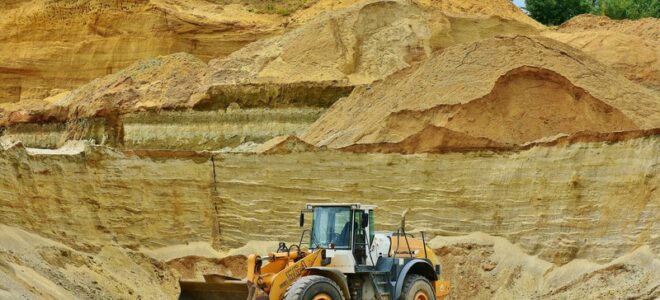Waste is something we all create, from the smallest candy wrapper to the bulky items we toss during a big clear-out. But where does it all go after it leaves our hands? Thankfully, today’s waste disposal systems are much more sophisticated than the dump-it-and-forget-it methods of the past. We’re looking into how these modern systems minimize the harm to our planet, making sure the next generations face fewer waste-related issues. Let’s take a closer look into the clever world of contemporary trash management and learn how these approaches are making a larger-than-life impact.
Smart Sorting and Recycling
One of the most significant improvements in waste management has been the widespread adoption of recycling programs. We’ve moved on from the era where everything ended up in a single bin, to differentiated waste streams that allow for more effective resource recovery. Here’s how it works:
-
Materials Recovery Facilities (MRFs): These are the hubs where our recycling gets sorted. They can differentiate plastics, metals, paper, and glass – a breeze for modern tech.
-
Single-stream recycling: This system lets us toss all recyclables into one bin. Back at the MRFs, technology separates it all again.
-
Composting Programs: From banana peels to grass clippings, organics are getting a new lease on life, turning into compost for gardens and agriculture.
When we recycle, we’re giving items a second life, reducing the need for new raw materials and saving energy in the process.
Innovative Disposal Technologies
Have you ever wondered what happens to the non-recyclable stuff? With new disposal tech, we’re not just chucking it all into a hole in the ground:
-
Waste-to-Energy (WtE): Some of our trash can be incinerated in a controlled setting to produce electricity. It’s a double win – disposing of waste while lighting up homes!
-
Engineered Landfills: Today’s landfills are designed to minimize leakage of contaminants into the soil and water. They’re layered with protective linings and systems to collect landfill gas, which can also be turned into energy.
-
Advanced Anaerobic Digestion: This process turns biodegradable waste into biogas, a renewable energy source, and it’s picking up steam worldwide.
This progressive approach helps reduce the environmental impacts of non-recyclable waste by capturing and using the energy within it.
Scaling Down at the Source
Another front in the battle against waste is reducing what we produce in the first place. This can happen at multiple levels:
-
Product Design: Manufacturers are getting smarter about design, creating products that use fewer materials or are easier to recycle at the end of their life.
-
Education and Awareness: Governments and organizations work hard to teach us the importance of reducing, reusing, and recycling, as well as changing our habits at home and work.
-
Legislation: Rules and regulations can prompt action, like banning single-use plastics or charging for plastic bags, nudging both businesses and consumers to make greener choices.
With all of us chipping in, we can make a marked difference in the amount of waste we generate.
Artful Conversions with Upcycling
Giving waste another life doesn’t always mean breaking it down. Upcycling is the trendy sister to recycling, transforming something old or used into something new and, often, quite artistic. From tire swings to furniture made from pallets, upcycling is all about creative reuse, and it’s catching on fast.
Dealing with Hazardous Household Waste
Not all waste is equal. Hazardous waste, like batteries, electronics, and chemicals, can be a nightmare for the environment if not handled correctly. Modern systems have specialized processes to safely dispose of or recycle these tricky items, keeping harmful substances out of our regular trash and away from the environment.
Greening the Commercial Sector
Businesses and industries create a lot of waste, and managing it can be a complex affair. That’s where systems like large commercial trash compactor in Philadelphia come in. Compact and efficient, these machines not only decrease the volume of waste (meaning fewer trips to the landfill or recycling center), but they also encourage companies to take a greener stance on their waste production.
Convenient Solutions for Large Waste Disposal
Sometimes you have a massive clear-out, a big project, or a special event that generates more waste than usual. This is when services like dumpster rental become a lifesaver. It’s straightforward—rent a dumpster, fill it up, and the waste is taken away to be sorted, recycled, or disposed of responsibly. It’s an on-demand way to handle large quantities of waste without sacrificing the environment.
Technological Advances in Waste Management
The future is bright for waste management, with emerging technologies that promise even greater strides in waste reduction:
-
AI and Machine Learning: These can optimize routing for waste collection services, making them more efficient and reducing emissions.
-
Sensor Technology: Waste bins equipped with sensors can signal when they’re full, making collections more timely and less frequent.
-
Bioplastics and Edible Packaging: Materials that can break down harmlessly or that you can eat? It sounds like science fiction, but research is making this a reality, aiming to replace problematic plastics.
Empowering Communities with Local Initiatives
Community-driven programs often have a significant impact on waste reduction. Farmers’ markets reducing packaging, neighborhood repair workshops, or initiatives to share goods rather than owning them outright all contribute to a culture of sustainability.
How We Can All Play a Part
Businesses and governments can do a lot, but our actions add up, too. By embracing the 3 R’s—reduce, reuse, recycle—we all help lower environmental impact. Add to that choosing services that share the same values, like click here if you are looking for a 30-yard dumpster for your next big project, and you’ve got a recipe for a cleaner, greener world.
Final Thoughts
Modern waste disposal is smart and essential for protecting our environment. High-tech machines sort recycling, while waste-to-energy plants and big compactors handle larger trash. Dumpster rental services also help manage waste. Thanks to new technologies and a focus on eco-friendly habits, our approach to trash is changing. We’re moving toward a future where being waste-free is standard. Everyone’s actions are important in this change, so we should keep improving and appreciate each advancement toward a cleaner planet.




